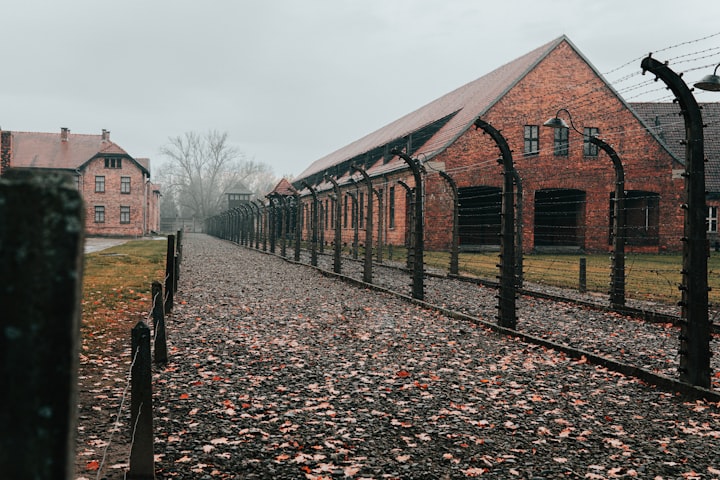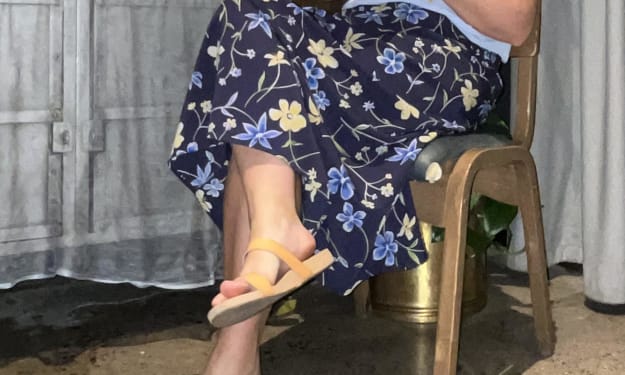STOWAWAY
-where there is a will...-

Chapter 3: STOWAWAY
Move forward with me to the fall of 1948, and to the living room of the tiny house in which I was living my new life with four siblings and my parents.
I was six years old and in a white heat of rage toward my father--though I dared not fully know I felt rage, much less express it in any way to him or to anyone. It seemed that my father had been lying to me for years, and when I made the discovery, he shrank and joined the Littles; he lost all stature and authority with me.
It was all about his going on fishing, hunting, and camping expeditions. I carry a vague memory of importuning on my behalf: “Can I go with you, Daddy?” The metal box of fishing lures and tools, the worn jackets, flannel shirts and boots, the oars, gas lanterns, and a small green Coleman stove— the paraphernalia he piled onto the living room floor carrying pungent, sweet, familiar perfumes-- gasoline, perspiration, wood smoke, and insect repellant--all this, enhanced by my father’s obvious joy and anticipation, stirred a passion in me to go wherever it was he was going.
When I begged to be taken along, he seemed delighted and amused, but he resorted to a now familiar excuse. He could have explained that during hunting trips the men often trudged several miles a day over wilderness terrain, and I wouldn’t be able to keep up. Instead, he had been putting me off by telling me I could go when I got older. As he prepared for an annual bear hunting expedition in late October of my first year in school, I asked to go as usual, and things came to a head.
“Oh, no, because you’re a first grader now,” he said lightly. “Bear hunting season is in the fall, and you can’t be out of school.” It all seemed vaguely hilarious to him.
“How long will I be in school?” I asked, tremulously. “You graduate when you are eighteen,” he replied, all compassion evidently out the window.
Eighteen years is an eternity for a child, and never you mind that I both loved and hated going to school. I withdrew from the conversation, stunned--incensed by what seemed to me to have been repeated lies told to me by my father. Now that I was older, I was too old! He had been laughing at me the whole time!
It was not that my father did not take us on wonderful picnics and family day trips and overnight visits to relatives. That happened constantly. If mother was willing to go on an outing, all the children came along. Unfortunately, Mama despised the very idea of camping. I longed to be included on all the trips-- especially when Daddy was gone for an entire week and returned with a huge aluminum tub of freshly caught mountain trout, heavily iced of course-- or big hunks of mysterious bear meat in his cooler.
It came to pass that I got the opportunity to take things into my own hands: One afternoon the following summer, my dad was gathering his gear for a weekend fishing and camping trip into the mountains of Virginia. His friend Vernon arrived in a sturdy Ford pickup, and they began to load their gear and provisions. (We called Daddy’s friend Uncle Vernon because it wasn’t considered proper, don’t you know, for a child to call an adult by his first name.) When the men were done with their packing, they went into the house, leaving me alone—by—the--truck. Without so much as a by-your-leave, I climbed into its bed and hid behind a pair of barrels attached to the left, wooden-slatted wall. I had become a wee criminal in the making! My brother and sisters came outside to wave goodbye to the fishermen in that vintage truck. It’s what we always did. “Bye, Daddy!” they were calling. About halfway up the hill, I stuck my head out from my hiding place and waved cheerily at the four of them.
“Daddy! Daddy! Martha’s in the truck!”
The roar of the engine drowned out their cries, and my siblings screamed in vain. I remember so clearly watching them turn as a group and run full tilt toward the back door and into the kitchen to tell Mama. Thank heavens I had shown myself to them; my mother would have been frantic had she not known where I was.
Daddy and Vernon made one stop that day en route to their camping spot. While they got gas and went inside for a few things at a small store, I virtually held my breath, crouched ever smaller, and made no sound. The two men bought cigarettes by the carton after they crossed into Virginia because they were not taxed as heavily as in Tennessee. We then headed on. After about an hour we were finally on a bumpy mountain road that wound upwards into the forest. Carefully hidden, I was lying low.
The moment of reckoning brought fear! Daddy had let down the tailgate and was unpacking sleeping bags and tent. Oh, my heart began to pound. It seems I felt the racket in every artery in my body and the jig was up! What would he do? Pull off his belt and whip me? My breath constricted as suddenly I came into full view—but oh my goodness! The man’s face lit with amazement and delight. He laughed out loud.
“Vernon!” he called. I never forgot what he said: “Come see what we’ve got in the gear!”
Daddy collected me from that rusty steel mini platform of a tailgate and swung me around in his arms. Here I was wearing a cotton dress and panties, barefooted. I would rarely wear shoes at home in the summer, so my feet were tough; I could make my way gingerly around the camp site. That night Daddy and Vernon unzipped their sleeping bags, using one for a mattress and one as a blanket, and I slept between them.
When he was ready to go fishing the next morning, Daddy hoisted me onto his back, and we set off along the creek. Finding a spot of choice, he lowered me onto a large expanse of flat rock, told me to stay out of the water, and then headed off to fly-cast in pools further along the stream. He no sooner vanished into the woods than I slid into that icy cold creek and settled onto the sandy bottom, up to my waist. What was there to do but collect tiny colored rocks! I was delighted by everything I saw—minnows, called “darters,” crawdads, spidery things on the water’s surface… This pattern repeated for hours. Daddy would reappear in his waist-high waders and smile happily, hoist me dripping wet onto his shoulders--and we would be off to another fishing hole. I do not remember whether he continued to tell me to stay out of that creek but there was no way I would have done so. I had moved into a zone of delight that made me fearless and I think the man was pleased by that. When we got back to camp, Daddy and Vernon built a fire, and I turned slowly in front of it to dry my thin homemade dress.
Never during the course of that weekend did I mention missing Mama. In fact, I did not miss her. I utterly adored her, and spent hours at her side when we were home—but in the depths of a great forest how could I miss Mama, or anything left behind? I complained about nothing.
And so, my father discovered that his seven-year-old daughter shared with him a passion for wilderness streams and lakes and mountain roads. He discovered not only that he could take me on some of his trips, but that he loved having me along. After that, much to my mother’s dismay and displeasure, I was his companion at every opportunity for years to come.
I exulted in the musky smell of humus rotting, and in the play of sunlight on the floor of a woodland. What magic when a wild trout flashed as it leapt in the rapids! My heart stood still the night we saw a beautiful red fox creep toward our campground, intent on raiding the leftovers from an alfresco feast. I reveled in the mist that drifted above the wide creek that ran alongside our campground. I was enthralled as our small boat rocked gently in a bowl of stars when we fished the lake in the dark of the moon. The images took hold of my very being.
Perhaps my father’s love for the out-of-doors and for taking me with him played a key role in my survival. I believe the outings gave me a reservoir of strength to fight the terrifying emotional illness which faced me as a young adult. I never felt close to him and hated to be alone with him. At least he was on his good behavior for the most part when we were on outings--but I spent time with him only because he was my ticket into paradise. An appreciation for his contribution to my life came decades later, long after his death, as I finally became able to unravel the complex rage that had built toward him from my earliest years. Gradually I find the freedom to accept that this man was my father. When the hatred rises to destroy my peace of mind—my delight in life-- I work it again. There surely is a purpose in it all, and a plan to see me through. I am a person of faith.
I pray God’s blessing on the man who bred me in my mother’s womb. As he approached death he obsessed with his Bible, spending hours reading and rereading, as Mom dutifully refreshed his supply of strong black coffee and emptied the nasty old ashtrays. I see him now, bare feet curled under the long body, the too-slender, old body of a man in terror of meeting his God. He asked forgiveness from his pastor, and my siblings laughed later, saying “I’d like to have been a fly on that wall!” I pray God heal the man and keep him safe across eternity—simply because I pray the same for myself. If God can love me, broken as I am, I know the Divinity that we Christians describe as Love itself, the love we call God, extends equally and completely to the broken shell of a man who was my father—and in fact, this Source called by different names throughout this earth, extends the magic called Love to us all, without exception. Can mere human mind understand a mystery we call Agape?
Everyday me is incapable of true forgiveness –because True Forgiveness is a miracle! And forgiveness is where the rubber hits the road.
About the Creator
Martha Agnes
"She's kinda crazy on a good day, but fun." Martha's BFF






Comments (1)
I finally got through to comment. Before, whenever I clicked on "Confirm your email to comment," nothing happened. I found your story "Stowaway" to be excellent: It limns out just as much as we need of time and place and of the characters involved. It shows your love of your father early on, and his love of you. You handle delicately why there is adult rage without specifying the cause and your handling of that rage. I have a couple of suggestions on punctuation: It is better to punctuate compound sentences, always, before the conjunction, because it often prevents temporary misreading. The clearest example of this is in the next-to-last paragraph of the story. "He asked forgiveness from his pastor and my siblings . . . ." See the temporary misreading without the punc.? Similar spots profiting from a comma are in the second paragraph, "It seemed . . . ." and in the last sentence of paragraph 15. I can't find the spot, but in one sentence a colon would be perfect punctuation. In a prose context, two rules demonstrate the perfect use of a colon: What precedes the colon must be grammatically complete, and what follows the colon must amplify or explain what precedes it. These niddlies aside, I appreciate the story as a picture of you and a complex, changing relationship.